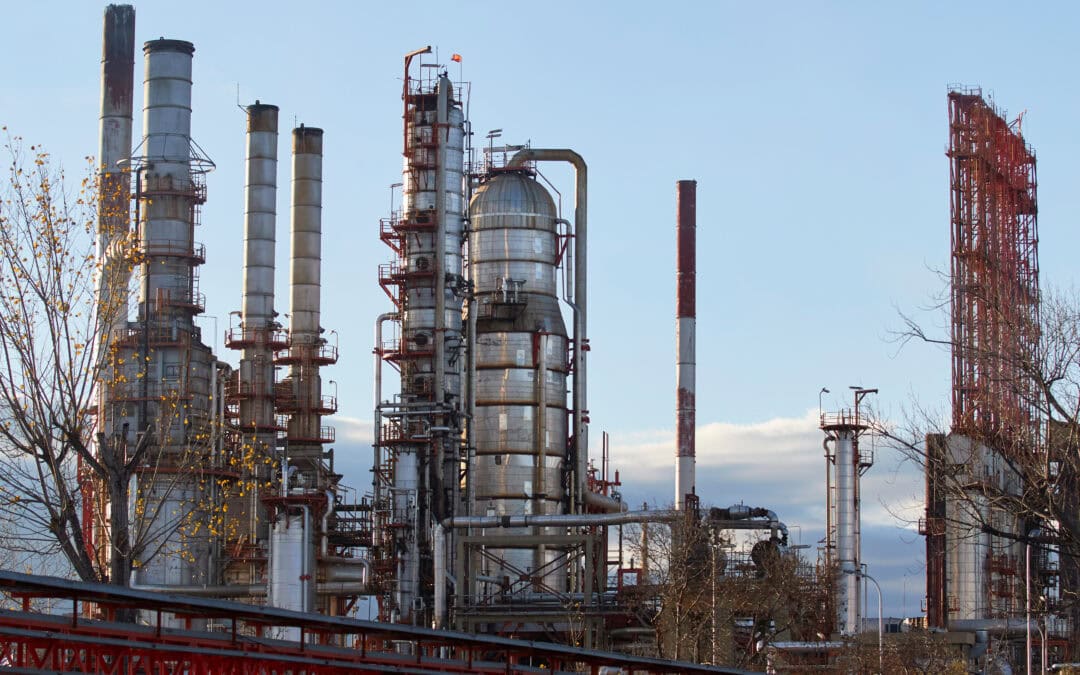Benzene is a common chemical in oil and gas work. Over decades, old drilling sites and storage tanks can leak benzene into the ground. This leak can cause land pollution, soil contamination, and groundwater contamination. If you live near a former oil field or gas facility, you have a right to know your risks. Let’s explore how benzene can impact our local environments and how Legacy litigation may help you protect your land and health.
What Is Benzene and Why It Matters
Benzene is a clear, sweet-smelling liquid. Industries use it to make plastics, rubber, and some detergents. While benzene helps create many products, it poses real health risks when it seeps into the environment.
Common Uses:
- Fuel blending at refineries
- Solvent in paints and cleaners
- Raw material for dyes and plastics
Why it matters:
- Health risks can arise when benzene enters soil or water
- It can linger for years under the ground
- It moves easily from soil into groundwater
Benzene’s infiltration into the earth makes it a top concern for land pollution and contamination.
How Historical Oil and Gas Operations Caused Benzene Contamination
Long before strict environmental regulations were in place, oil and gas companies routinely handled waste directly on-site. Drilling mud, produced water, and sludge were often buried in the ground. Fuel was stored in underground tanks that sometimes cracked and leaked. Unlined pits were sometimes dug near wells and used to store or dispose of production wastes. Over time, these outdated practices caused widespread soil and groundwater contamination. Let’s take a look at some of the ways benzene contaminates the places we call home:
- Land Pollution at Drill Sites: At many drilling locations, oil and drilling mud were spilled directly onto the open ground. In some cases, toxic waste was buried in shallow pits near wellheads, where it remained for decades, leaching harmful chemicals into the surrounding land.
- Soil Contamination from Leaks: Underground storage tanks frequently developed cracks or corrosion, allowing benzene and other hazardous chemicals to seep into the soil. Old pipelines, too, often failed over time, dripping petroleum byproducts into the earth unnoticed.
- Groundwater Contamination Paths: Benzene and similar compounds moved down through the soil layers, eventually reaching underground water sources. In many areas, this resulted in the contamination of water wells, springs, and aquifers.
Even if a property shows no obvious signs of contamination today, invisible pockets of benzene may still be hidden beneath the surface, posing ongoing risks to both land and water.
Signs of Benzene in Your Land and Water
Pollution doesn’t always leave visible traces, but there are subtle signs you can watch for—especially if your land sits on or near a former oil and gas site.
Some of the things to be on the lookout for include:
- Discolored patches of soil, dead vegetation, or unusual plant growth can be signs of contaminated land. These irregularities may indicate that harmful substances are present just below the surface.
- A strong, sweet smell—similar to gasoline—coming from the ground can also be a red flag. After a rain, you might also notice an oily sheen on puddles or standing water, suggesting that chemicals are present in the soil.
- Additionally, if your well water tastes or smells unusual, or if it appears cloudy or has an oily film, these may be signs of groundwater contamination. Such changes should be taken seriously and tested promptly, as they could point to benzene or other pollutants in your water supply.
As mentioned, benzene contamination isn’t always noticeable and there are many other signs, so if you suspect there’s an issue, call an environmental expert. A simple test can confirm benzene levels in soil and water.
Health Risks of Benzene Exposure
Benzene can harm your health, especially with long-term exposure. Knowing the risks helps you take quick action. Some of the effects include:
- Short-term exposure may cause dizziness, headaches, and nausea.
- Longer exposure links to blood disorders and certain cancers.
Protecting Your Rights with Legacy Litigation
Benzene contamination from historical oil and gas operations can affect your health, your land, and your wallet. Legacy litigation opens the door for landowners to seek justice and holds old operators responsible for past pollution. You may recover cleanup costs, loss in land value, and other damages. With the right team, you can focus on healing your land and life while they handle the legal fight.
You don’t have to face this risk alone. At Talbot, Carmouche & Marcello, we guide Louisiana landowners through land pollution claims and Legacy litigation. Let us help you test your land, plan a cleanup, and secure the justice you deserve. Call or contact one of our Legacy litigation attorneys today.

